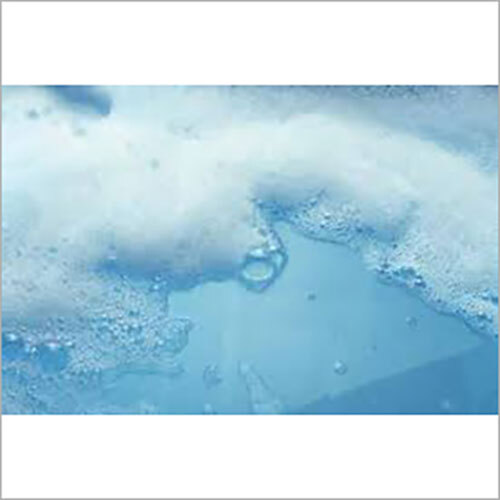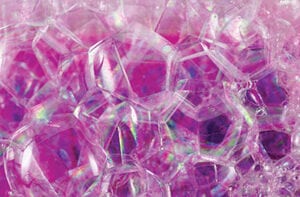Defoamers: Key Solutions for Managing Foam in Various Processes
Defoamers: Key Solutions for Managing Foam in Various Processes
Blog Article
The Duty of Defoamers in Enhancing Item High Quality and Efficiency
In various manufacturing procedures, the presence of foam can dramatically prevent product high quality and functional efficiency. Defoamers act as vital ingredients that mitigate this problem, making certain smoother production workflows while enhancing the visual and useful qualities of the end products (defoamers). Their application covers a wide range of markets, from food and beverage to pharmaceuticals, where consistency and dependability are vital. Nevertheless, the option of the proper defoamer can be critical to attaining ideal outcomes, elevating important questions regarding solution compatibility and efficiency metrics that warrant further expedition.
Comprehending Defoamers
Comprehending the function of defoamers is crucial for maintaining product quality throughout different sectors. Defoamers are chemical ingredients designed to minimize and avoid the development of foam in fluid systems, which can negatively influence processes such as blending, loading, and surface tension. Foaming can result in inefficiencies, product flaws, and compromised visual appeal, making defoamers a critical element in making operations.
In industrial applications, defoamers aid to enhance item consistency and security. The effective usage of defoamers not only ensures smoother manufacturing processes however also adds to superior item performance.
Additionally, the selection and formula of a defoamer must line up with specific application demands, such as compatibility with other active ingredients, efficiency under varying temperature level and pH conditions, and prospective regulatory restrictions. Inevitably, understanding defoamers' features and their importance in different solutions is important for maximizing production and making certain the highest high quality end products.
Types of Defoamers
Defoamers can be classified right into several types based upon their make-up and mechanism of action. The main kinds consist of silicone-based, non-silicone natural, and inorganic defoamers.
Silicone-based defoamers are among one of the most reliable, largely due to their capability to spread out promptly on the liquid surface and interrupt foam development. Their one-of-a-kind chemical framework enables exceptional stability, making them appropriate for high-temperature applications and atmospheres with differing pH degrees.
Non-silicone natural defoamers, often composed of natural oils or fatty acids, are valued for their biodegradability and lower toxicity. These are generally utilized in food and beverage applications where safety and environmental impact are critical.
Inorganic defoamers, which include compounds like talc or calcium carbonate, act by enhancing the density of the liquid, thus decreasing foam stability. They are typically used in industrial processes where compatibility with other products is not a problem.
Each kind of defoamer has distinctive benefits and restrictions, enabling for tailored remedies depending on the details lathering concerns encountered in numerous applications. Recognizing these distinctions is vital for enhancing performance and achieving wanted item high quality.
Applications Across Industries
Numerous sectors take advantage of defoamers to enhance item top quality and operational efficiency. In the food and drink industry, defoamers are essential in procedures such as brewing and dairy manufacturing to stop foam formation, which can bring about ineffectiveness and product inconsistency. By regulating foam, producers can ensure much better yield and an extra uniform item.
In the pharmaceutical industry, defoamers play an essential function in the solution of liquid drugs, where extreme foam can restrain mixing and exact dosing. Their usage helps keep the integrity of the formulas and facilitates smoother production procedures.
The paint and coverings sector also depends on defoamers to enhance the efficiency of products during application. By decreasing foam, these additives make sure a smoother finish and improve the visual qualities of the final item.

Benefits of Utilizing Defoamers
While the application of defoamers varies across industries, their benefits consistently boost item top quality and procedure effectiveness. One considerable advantage is the reduction of foam development throughout making procedures, which can otherwise lead to production hold-ups and incongruities in item high quality. By reducing foam, defoamers enable a smoother circulation of products, assisting in a lot more effective operations and lowering the chance of devices malfunctions.
Additionally, the usage of defoamers can boost the appearance and texture of end products. In industries such as coverings, paints, and food handling, extreme foam can jeopardize the aesthetic appearances and general quality, while the ideal defoamer application makes sure an uniform coating and desirable characteristics. In addition, defoamers can add to cost financial savings by reducing waste throughout production and optimizing using raw materials (defoamers).

Selecting the Right Defoamer
Selecting discover here the best defoamer is important for enhancing manufacturing processes and making sure product high quality. The option of defoamer influences not only the effectiveness of foam control but also the total efficiency features of the end product. Aspects to think about include the kind of application, the chemistry of the formulation, and the ecological problems under which the product will be used.
Various markets may require certain defoamer types, such as silicone-based, organic, or polymeric defoamers. Understanding the compatibility of the defoamer with the key components is important to avoid adverse responses that might compromise item stability. Furthermore, the defoamer's effectiveness in numerous temperature levels and pH levels have to be examined to guarantee consistent efficiency.
Examining the defoamer in small applications can provide useful insights right into its efficiency and suitability. Factor to consider of regulatory conformity, especially in food, drugs, and cosmetics, is paramount in check my blog selecting a defoamer. Ultimately, a complete assessment of these variables will cause the selection of a defoamer that not only manages foam effectively however additionally enhances the high quality and efficiency of the end product.
Final Thought

In conclusion, defoamers are essential ingredients that dramatically boost product quality and performance throughout different markets. The tactical selection and application of defoamers lead to set internet you back financial savings, maximized resource use, and raised consumer fulfillment.
Lathering can lead to inefficiencies, item flaws, and jeopardized aesthetic allure, making defoamers an important element in manufacturing procedures.

Report this page